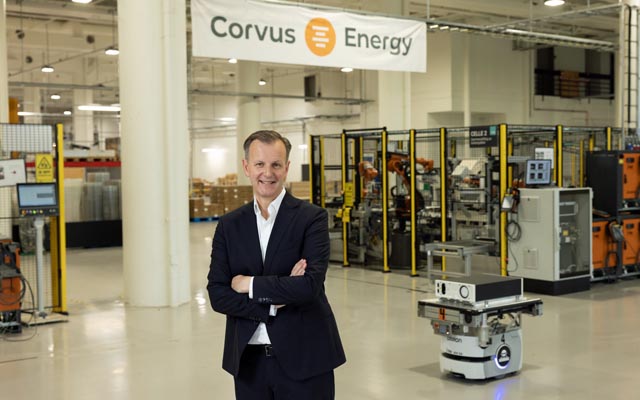Supplier of zero- emission solutions for the maritime industry Corvus Energy has announced that the company’s battery systems have cumulatively helped customers reduce 10 million tons of CO2 since the first installation in 2013.
The savings are based on estimates of CO2 reduction using operational data from Corvus and DNV, with reference to the IMO fourth GHG study. With shipping accounting for nearly 3% of global GHG emissions, reducing the industry’s carbon footprint has become one of the most pressing challenges in the fight against climate change.
Over the past 10 years, Corvus Energy has worked closely with integrators, shipowners, operators, and industry stakeholders to implement its battery systems across a range of vessels. These include many different vessel types from ferries and cruise ships to offshore vessels, workboats and cargo vessels. By integrating battery power with hybrid or fully electric propulsion, Corvus Energy has been able to significantly cut fuel consumption and reduce the environmental impact of maritime transport.
The company’s milestone of cutting 10m tons of CO2 underscores the scale at which these battery solutions are making a difference. For context, the average car in Europe emits about 1.6t of CO2 annually. This means that the 10m tons of CO2 reduced is equivalent to removing more 6m cars off the roads for a year.
Corvus Energy CEO Fredrik Witte said: “Reaching the 10-million-tons CO2 reduction mark is an extraordinary achievement for us. Helping our customers to cut significant amounts of emissions through our pioneering technology makes us very proud. The future of shipping lies in sustainability. Through our work, we have proven that marine battery energy storage is key in the marine energy transition. By continuing to innovate and scale our zero-emission solutions, we aim to help the shipping industry achieve its environmental targets while supporting the broader goal of a sustainable, carbon-neutral global economy.”
The company’s marine battery systems use the latest lithium-ion battery technologies offering increased energy density, lower weight and increased safety as well as digital offerings. In addition, Corvus Energy supplies hydrogen fuel cells built on technology from Toyota. The systems are designed to work in conjunction with existing propulsion systems, allowing vessels to reduce reliance on HFO and LNG, both of which are sources of CO2 emissions in the maritime sector.
By enabling vessels to operate more efficiently and reduce fuel consumption, the battery systems help shipping companies cut operational costs. With global regulations tightening around emissions, especially in the wake of the IMO GHG strategy, the demand for cleaner, more sustainable shipping solutions has never been higher.
Corvus Energy says it has garnered recognition from environmental organisations, maritime industry experts, and governmental agencies for its role in helping to pave the way toward a greener shipping industry. Corvus has received several awards for its contributions to environmental sustainability. Looking ahead, Corvus Energy is continuing to roll out safe, scalable and reliable battery systems along with other zero emission technologies to more ships worldwide.
Image: Corvus Energy CEO Fredrik Witte (credit: Eivind Senneset/Corvus Energy)



